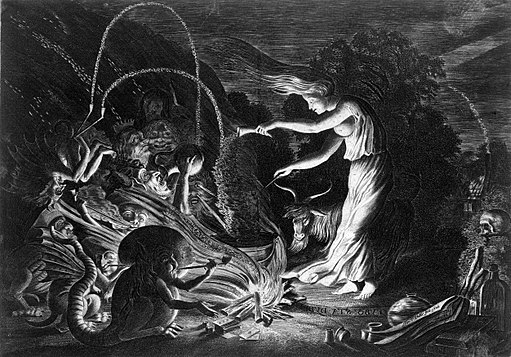
How to Get Out of Revision Hell, My Story
Every novelist’s journey is unique; and I want to start by sharing how to get out of revision hell. Welcome to my pre-launch blog post series introducing: The Amara Orrick Series! My first novel and urban fantasy series!
Anyone who knows me well knows I like dealing with facts, but can also enjoy a healthy debate of opinions. I’m blunt and outspoken, but also tactful, showing sensitivity, and show kindness. I love fighting for the underdog and helping people solve problems. So, it is with this passion for problem solving that share my personal journey of how I got through writing my first draft to where my project is currently at today.
If you want to know how I got out of revision hell, I answer that at the end of the post. So you can skip to the bottom if you want. Or you can read how I got there. I’m sharing with the hope that it will help other writers avoid some of the coldly mistakes I made along the way.
The Beginning
A dream about a witch, turned into an idea for a fantasy novel in my 20’s. A good friend, who was an editor at White Wolf publishing at the time, encouraged me to write it. However, I lacked the confidence to try. Many years went by and still the idea would not leave me alone, so in the early twenty-teens I finally gave in and started writing to the little voice in my head would shut up.
How I Established my Writing Practice
Kindness
Unfortunately the voice inside did not stop. It turned it’s monologue around on me: what makes you think you can write a novel, your dyslexic, who would want to read something you wrote, you can’t even spell, and on it went. I plucked around until I found Natalie Goldberg’s book Writing Down the Bones. As a cafeteria buddhist this book hit just the right notes and helped me quite my inner critic.
Community
I love the phrase Goldberg uses, “Shut up and write.” You have to start somewhere and there is no perfect time. Reading her experience as a poet turned novelist, I realized I needed to team up with someone else who wanted to establish a writing practice. I posted an ad on Craig’s List and found a writing partner.
Later, I found the ShutUp & Write community. I became an organizer for them and my writing partners came along with me. Once the pandemic hit, all events were taken online and I stopped organizing for them and lost touch with them and many in the community I had created. However, by that time I was in a habit of writing even moving before anyone else was up, and I found new ways to reach communities online. This is when I found the Fictionary community.
After the pandemic I gathered together what was left of my writing group and founded the Brooklyn Writers Exchange, a support group for writers who want to establish a wring practice and network. We meet every Thursday at 6pm in the Brooklyn Heights Library’s craft room. Come join us to write. You can find out more here.
How to Start a Writing Process, My Story
I started by writing the backstory for each of my major characters, the world they live in, and the magic they use. Using Google, I found the Snowflake Method, created by Randy Ingermanson. It’s not a perfect method, but it fit the process I used to write short stories. So, I felt comfortable starting with it; and It was a simple.
I hand written wrote notes posed on my bulletin board, notebooks full of scene, and scenes, as well as editing notes in different files all over my computer. I knew I needed to get organized, but wasn’t sure how to do it. And so, I compiled all my work into two flies in Google Documents.
It wasn’t until the pandemic that I found out more about how to write a more structured novel. I took a writing class and rewrote my first draft almost entirely from scratch a second time. All the while I felt like I was an imposter when it came to calling myself a writer. Even though I had wrote content for many blogs and was a published poet.
How to Deal with Imposter Syndrome, My Story
Education
Until a few years ago I considered myself a pantser. I’m not, nor do I believe any writer can be just a pantser or a planner. Being in tune with your inner voice is an important skill that is hard to cultivate if you insist on planning all the personality out of your writing and replacing it with hard dry structure. All writing is rewriting as my college professor used to say.
I took the course Good With Words, taught by a law professor at the university of Michigan. It boosted my confidence. It wasn’t until I started to try and strengthen the areas of my writing that were the weakest that I finally felt like I could call myself a real writer. The same thing happed when I decide to become a Fictionary certified story coach.
How to Get Out of Revision Hell, Status Update
Until about two years ago I considered myself a pantser. I’m not, nor do I believe any writer can be just a painter or a planner. Being in tune with your inner voice is an important skill that is hard to cultivate if you insist on planning all the personality out of your writing and replacing it with hard dry structure. All writing is rewriting as my college professor used to say.
I took the course Good With Words, taught by a law professor at the university of Michigan. It boosted my confidence. It wasn’t until I started to try and strengthen the areas of my writing that were the weakest that I finally felt like I could call myself a real writer, but I still didn’t feel like I knew what I was doing when I worked on my novel.
I decide to become a Fictionary certified story coach. I use the Fictionary app to edit and revise my work. If you are curious and want to check out their community of writers follow this link.
The manuscript is currently in the homestretch of the revision phase. It took a very long time to get here. It was because when I first started I had no idea how to write a novel, or edit one, let alone revise one. I will talk about that here, plus how there is no one correct way to write a novel, or edit and revise one.
Once the cover art has been finalized it will show here, follow me on your favorite social media poison of choice or my blog for the lates updates.

P. A. Harper writes about sustainability in all its many forms, is the founder of the Brooklyn Writer’s Exchange, loves to read, drinks too much tea, and writes fiction.
Hire or stalk her online at PAHarper.com, Goodreads, on Facebook @AuthorPAHarper, Twitter @AuthorPAHarper, or Instagram @P.A.Harper